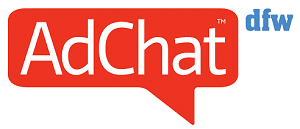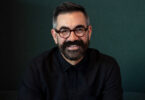A few years ago, while at my first public relations internship, I found myself having a bit of a silent mental spiral at my desk. I wasn’t even more than a few minutes into my panic before a senior leader at the company passed me, stopped, and said, “Are you doing alright?” Within moments I was given a Kleenex and a plethora of advice on navigating early-career-stress.
While that senior leader wasn’t my formal mentor, her moment of mentoring me years ago has always stayed with me. I often found myself nervous at reaching out for advice from my mentors and wasn’t completely sure on how to navigate the mentorship process to begin with. When I heard PRSA Dallas was having a session on Demystifying the Myths of Mentoring, I knew this was the session for me and many others in the early years of our careers.
Hosted by BCW, the first PRSA Dallas Young Professionals session of 2023 centered around mentorships and how to navigate these relationships. Mentor-mentee pair Kelley Johnson, founder and CEO of Keirus by KJE, and Devean Owens-Toler, operations and analytics leader at Kierus by KJE, discussed how to find a mentor, what to look for in one, and how to establish long-term relationships that can shape your career for the future.
It’s no secret that for young professionals, a mentor can be the necessary support system to land that first internship, navigate early career hurdles, and be a sounding board for making professional decisions. Whether its the uncertainty and lack of confidence young professionals face or the increasingly virtual workplace in a post-COVID world, the fear of actually taking that next step into reaching out to establish a mentorship relationship is real.
“What if they’re too busy to be my mentor?” “What if we don’t work in the same city?” “How do I know what to look for in a mentor?” These questions appeared to be the roadblocks for young professionals in finding a mentor. Here’s what Kelley and Devean had to say:
- Don’t Make it Complicated: For Devean, it was as simple as asking Kelley point-blank if she would become her mentor. While they both recommended not taking this route, Kelley and Devean encouraged young professionals to send a quick email for coffee or find time virtually to chat. The relationships don’t have to be formal and can grow over time.
- Build Mutual Respect: Devean stressed the responsibility of the mentee to find time to meet with their mentor and to come prepared with questions and concerns to discuss. Especially if a young professional is meeting with someone more senior, it’s crucial to take steps in order to make the mentorship as easy as possible for both parties. Mentorships are supposed to be stress-free!
- Be a Good Investment: It’s important for young professionals to illustrate the value they bring to the table and why they would be worth a mentor’s time to support. Beyond being proactive at setting time, bring knowledge and ideas that may be insightful for your mentor. Heard of an interesting media opportunity that may be a fit for your mentor’s work? Read research that is relevant for your mentor? Find opportunities to share and connect. Though young professionals are, well, young, that does not negate the expertise we can bring to the table.
- Don’t Be Afraid to Go Personal: Take the time to get to know the person behind the accomplishments and allow mentors to get to know you. Having a mentor with the same values and who understands your personal journey is valuable.
- Rethink Your Mentor: While you may have your sights set on a professional that has the role you aspire to someday, don’t get frustrated if it turns out that person is not the right mentor. You may meet with someone and not feel the connection. That’s okay. Be open to expanding your view of what an ideal mentor loos like.
While mentorship is incredibly useful for young professionals, some of the seasoned public relations practitioners in attendance at the session discussed the forms that mentorship can take. Mentorship does not necessarily have to be a formal mentoring relationship but could look like expressing feedback after a long work week, sharing nuggets of advice on the way to the coffee maker, or as simple as checking in with the junior staff members in the office. The question for established professionals may not be “When should I become a mentor?” but rather “How can I incorporate mentorship into my day-to-day activities?”
Mentoring, when both the mentor and the mentee are aligned, can be a valuable experience. In an increasingly virtual world, mentorship now more than ever can be that necessary human interaction that can ease young professionals’ worries and questions about the public relations world.
Claire Gilpin is an assistant account executive at BCW. She previously served on the PRSSA National Committee as the national vice president of digital communications.









